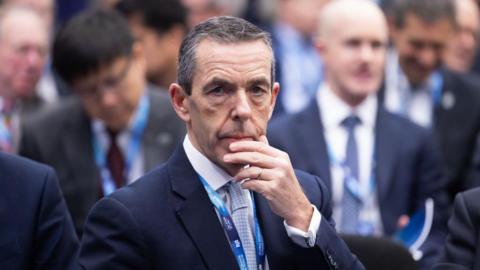Mr Stuart said his banking group was spending hundreds of millions of pounds improving its IT systems.
"I think the amount of money banks - all of us - will be putting into our systems is enormous," he said.
"The defence mechanisms you put in are absolutely critical."
Across his group, he said they are processing 1000 payments a second while making 8000 IT changes and updates every week.
Prof Oli Buckley, a cyber security expert at Loughborough University, said cyber attacks on financial institutions were "relentless" and "increasingly sophisticated".
"Ian Stuart is definitely right to highlight cyber security as a major concern for the banking sector, but recent events within retail have been a stark reminder that it can impact every sector," he added.
"It goes beyond just protecting customer data, it's about maintaining trust in the entire financial system. A breach doesn't just risk individual accounts; it can ripple through markets, reputations, public confidence and beyond."
Barclays, Lloyds, Nationwide, Santander, NatWest, Danske Bank, Bank of Ireland and Allied Irish Bank have also provided information to the committee.
Between January 2023 and February this year, they experienced 158 IT failures between them.
Vim Maru, CEO of Barclays, addressed MPS about the Barclays outage which occurred on what was January pay day for many people.
Serious IT problems affected online banking for several days, left some people unable to move home - and could result in the bank facing compensation payments of £12.5m, a report has found.
Mr Maru apologised to customers, saying he was "deeply sorry for the disruption". He said there was no evidence it was caused a cyber incident or a malicious act.
Following the Barclays incident in January, about 1.2m people in the UK were then affected by further banking outages in February.
Those problems occurred at Lloyds, TSB, Nationwide and HSBC.
